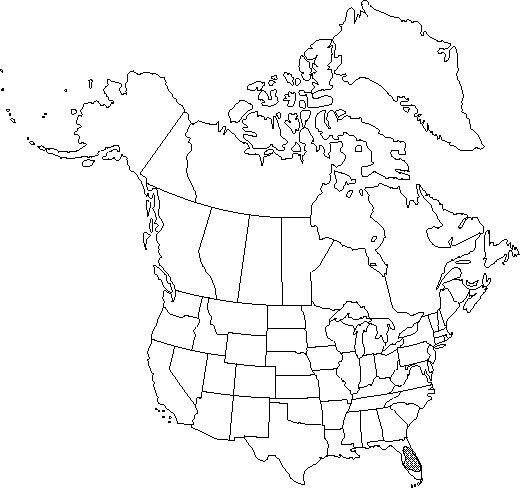Carya floridana
Trees & Shrubs 2: 193, plate 177. 1913.
Trees, to 25 m; more often shrubs, 3-5 m. Bark gray, smooth or fissured. Twigs reddish-brown, slender, glabrous to scaly. Terminal buds golden to rusty brown, ovoid, 3-9 mm, hirsute along margins and densely scaly; bud-scales imbricate; axillary buds protected by bracteoles fused into hood. Leaves 2-3 dm; petiole 4-7 cm, with coarse hairs and scales in spring. Leaflets 3-7, lateral petiolules 0-1 mm, terminal petiolules 0-5 mm; blades ovate to elliptic or obovate, not falcate, 4-10 × 2-4 cm, margins often coarsely serrate, apex acuminate; surfaces abaxially with unicellular and 2-8-rayed fasciculate hairs restricted to axils of secondary-veins, large peltate scales and small irregular and round peltate scales imparting rusty brown color, adaxially with peltate scales in spring. Staminate catkins pedunculate, to 6 cm, stalks with coarse hairs, rusty brown scales, bracts scaly, sparingly hirsute; anthers hirsute. Fruits bronze to dark-brown, obovoid to oblong, not compressed to slightly compressed, not angled, 3-4 × 2-2.5 cm; husks rough, 2-3 mm thick, dehiscing to base, sutures slightly winged; nuts tan, ellipsoid, slightly compressed, not angled, rugulose; shells thick. Seeds sweet. 2n = 64.
Phenology: Flowering spring.
Habitat: Sandy ridges of sand-pine scrub
Elevation: 0-50 m
Discussion
Carya floridana intergrades with C. glabra in areas where their ranges overlap.
Selected References
None.
